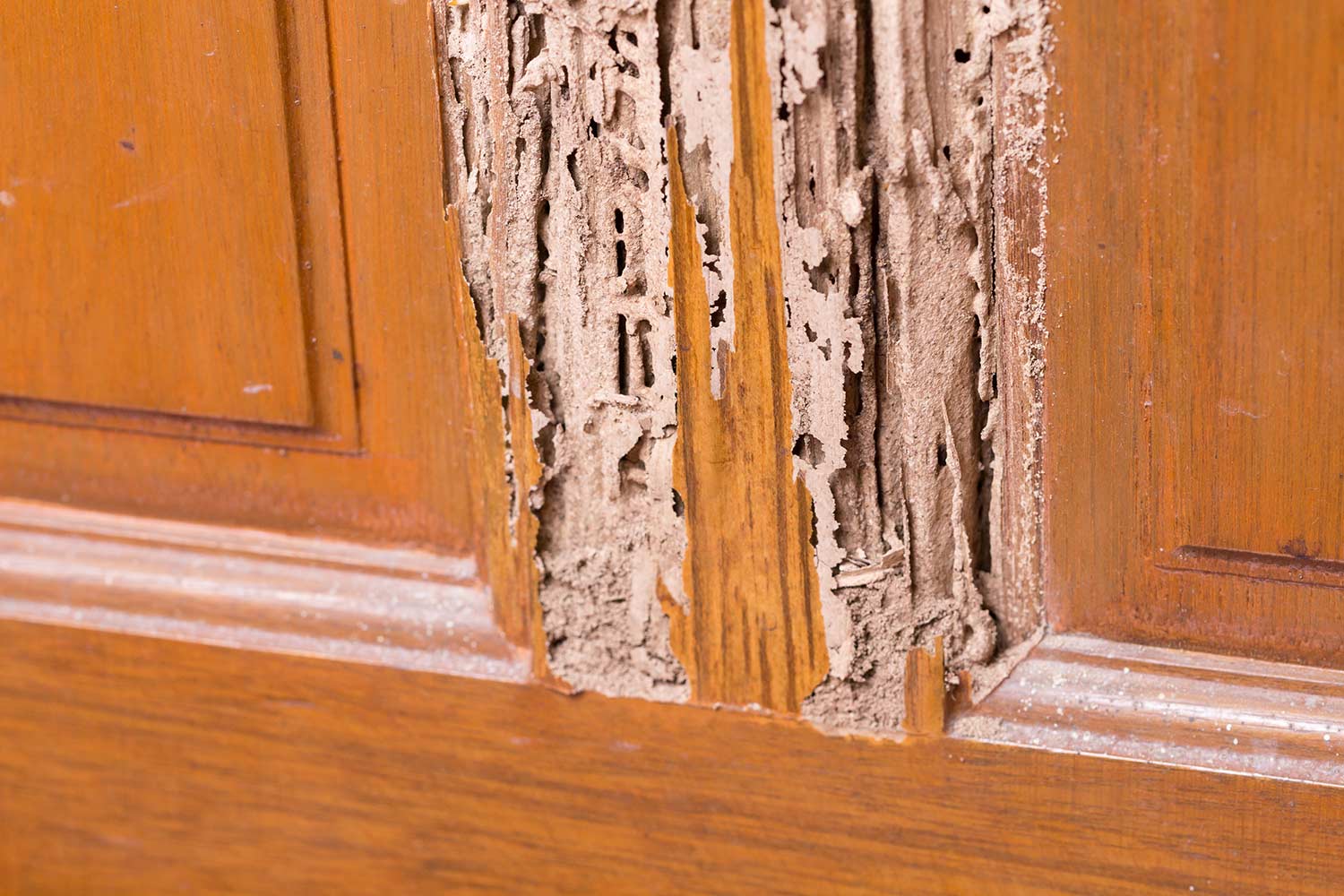
Florida, is a hot real estate market with a high demand for houses in all conditions. If you have a fixer-upper house in Florida that you’re looking to sell, there are a few things to keep in mind to help you get the most out of your property. Here are some tips for selling your fixer-upper house in Florida.
- Be Realistic About Your Selling Price
When selling a fixer-upper house, it’s important to be realistic about your selling price. Buyers looking for fixer-uppers are often looking for a bargain and will be looking for a lower price than they would pay for a move-in ready home. Consider the condition of the house and the cost of any repairs that need to be made when pricing the property.
- Highlight the Potential
Even if your fixer-upper house needs a lot of work, there is still potential in the property that you can highlight to potential buyers. For example, if the house has good bones or a desirable location, be sure to point this out in your listing description. Show potential buyers how the property could be transformed into their dream home with a little bit of work.
- Make Necessary Repairs
While you don’t need to fix everything in a fixer-upper house, there are some repairs that should be made to make the property more attractive to buyers. Focus on the repairs that will have the most significant impact on the overall condition of the property. For example, fix any leaks or electrical issues, replace any broken windows or doors, and repair any damage to the roof.
- Stage the Property
Staging a fixer-upper house can help potential buyers see the potential in the property. This doesn’t have to be a full-blown staging process, but rather simple things like cleaning the house, decluttering, and adding a fresh coat of paint can go a long way in making the house more attractive to buyers.
- Be Transparent
When selling a fixer-upper house, it’s important to be transparent with potential buyers about the condition of the property. Make sure that buyers are aware of any repairs that need to be made and any potential issues that they may encounter. This will help avoid any surprises later on in the sales process.
In conclusion, selling a fixer-upper house in Florida, requires a bit of extra work, but it can be a great way to get the most out of your property. By being realistic about your selling price, highlighting the potential of the property, making necessary repairs, staging the property, and being transparent with potential buyers, you can increase your chances of a successful sale.

Owning a rental property in Florida, can be a lucrative investment, but being a landlord can also be a challenging and time-consuming job. If you’re tired of being a landlord and dealing with the headaches that come with managing a rental property, it may be time to consider selling your Florida rental property. Here are some reasons why selling your rental property could be the right choice for you.
- No More Landlord Responsibilities
One of the biggest benefits of selling your rental property is that you’ll no longer be responsible for the day-to-day tasks of being a landlord. This includes finding and screening tenants, dealing with maintenance and repairs, and collecting rent. By selling your rental property, you can free up your time and focus on other areas of your life or investments.
- Opportunity for a Profit
If you’ve owned your rental property for a while, there’s a good chance that its value has appreciated. Selling your property now could mean a significant profit, especially if you bought the property at a lower price or have made improvements over the years. This profit can be reinvested in other areas or used to achieve financial goals.
- Avoiding Tenant Problems
Dealing with difficult tenants can be one of the most stressful parts of being a landlord. From late rent payments to property damage, tenants can create headaches that can take a toll on your mental and emotional well-being. By selling your rental property, you can avoid these problems altogether and find peace of mind.
- Simplify Your Finances
Owning a rental property comes with financial obligations, such as property taxes, insurance, and maintenance costs. By selling your rental property, you can simplify your finances and reduce the stress that comes with managing multiple properties.
- The Real Estate Market is Strong
The real estate market in Florida, is strong, with high demand for properties of all types. This means that you may be able to sell your rental property quickly and for a good price. By taking advantage of the current market conditions, you can get a great return on your investment and move on to other opportunities.
In conclusion, selling your Florida rental property can be a great option if you’re tired of being a landlord. By eliminating landlord responsibilities, taking advantage of the opportunity for a profit, avoiding tenant problems, simplifying your finances, and capitalizing on the strong real estate market, you can find peace of mind and move on to new opportunities. If you’re considering selling your rental property, be sure to work with a reputable real estate agent who can guide you through the process and help you get the most out of your investment.

Selling a home can be a complicated and time-consuming process, especially if you have title issues. Title issues can include liens, judgments, or other legal disputes that can make it difficult to sell your Florida home. However, there are ways to sell your home for cash even with title issues. Here are some tips to help you through the process.
- Understand the Title Issues
Before selling your home, it’s important to understand the title issues that you’re facing. This can help you determine what needs to be resolved before you can sell your home. You may need to work with an attorney or title company to resolve any outstanding issues.
- Find a Cash Buyer
One option for selling your Florida home with title issues is to find a cash buyer. Cash buyers are investors who are willing to purchase your home as-is, without the need for repairs or renovations. These buyers are typically experienced in dealing with title issues and can help you navigate the process.
- Consider a Short Sale
If you have significant title issues and owe more on your mortgage than your home is worth, you may want to consider a short sale. A short sale involves selling your home for less than the amount owed on your mortgage. This can be a complex process, but it can help you avoid foreclosure and get out from under a mortgage that you can no longer afford.
- Work with a Real Estate Agent
Another option for selling your Florida home with title issues is to work with a real estate agent who has experience in dealing with these types of situations. An experienced agent can help you navigate the process of selling your home and can connect you with cash buyers or other potential buyers who may be interested in your property.
- Be Prepared for a Lower Sale Price
If you’re selling your home with title issues, you may need to be prepared for a lower sale price than you would get if your title was clear. Buyers may be hesitant to purchase a home with title issues, and you may need to offer a discount to entice them to buy.
In conclusion, selling a home with title issues in Florida can be challenging, but it’s not impossible. By understanding the issues you’re facing, finding a cash buyer, considering a short sale, working with a real estate agent, and being prepared for a lower sale price, you can sell your home and move on to your next chapter. Remember to work with professionals who can help you through the process and ensure that you’re making the best decision for your financial situation.

Termites are a common problem in Florida and can cause significant damage to your home. Selling a home with termite damage can be a challenge, but it’s not impossible. Here are some tips to help you sell your Florida house with termite damage.
- Get a Termite Inspection
Before selling your home, it’s important to get a termite inspection. A professional inspector can identify any active termite infestations and assess the damage that has already been done to your home. This information can be useful when determining the best course of action for selling your home.
- Make Repairs
Once you know the extent of the termite damage, you’ll need to make repairs to your home. This can include replacing damaged wood, repairing structural damage, and treating any active termite infestations. It’s important to work with a licensed contractor who has experience in dealing with termite damage to ensure that the repairs are done correctly.
- Disclose the Termite Damage
When selling your home, it’s important to disclose any termite damage to potential buyers. This is required by law in Arizona, and failing to disclose the damage can result in legal issues down the line. Disclosing the damage upfront can also help you avoid any surprises during the home inspection process.
- Price Your Home Accordingly
When selling a home with termite damage, you may need to adjust your asking price. Buyers may be hesitant to purchase a home with termite damage, and you may need to offer a lower price to entice them to buy. It’s important to work with a real estate agent who has experience in selling homes with termite damage to determine the best pricing strategy.
- Consider Selling to a Cash Buyer
If you’re having trouble selling your home with termite damage, you may want to consider selling to a cash buyer. Cash buyers are investors who are willing to purchase your home as-is, without the need for repairs or renovations. They may be more willing to overlook termite damage and can help you avoid the traditional home-selling process.
In conclusion, selling a home with termite damage in Florida can be a challenge, but it’s not impossible. By getting a termite inspection, making repairs, disclosing the damage, pricing your home accordingly, and considering selling to a cash buyer, you can sell your home and move on to your next chapter. Remember to work with professionals who can help you through the process and ensure that you’re making the best decision for your financial situation.

Foreclosure can be a daunting and stressful experience for any homeowner. In Florida, many homeowners are struggling to keep up with their mortgage payments due to financial hardship or unforeseen circumstances. Fortunately, there are resources available to help you avoid foreclosure and keep your home. Here are some steps you can take to get help avoiding foreclosure in Florida.
- Contact Your Lender
The first step in avoiding foreclosure is to contact your lender. They may be able to work out a payment plan or modify your loan to make your payments more manageable. It’s important to be upfront and honest about your financial situation to increase your chances of getting help.
- Seek Assistance from a Housing Counselor
Housing counselors can provide free or low-cost advice to homeowners who are struggling to make their mortgage payments. They can help you understand your options and negotiate with your lender on your behalf. The U.S. Department of Housing and Urban Development (HUD) provides a list of approved housing counseling agencies in Florida.
- Explore Government Programs
There are several government programs available to help homeowners avoid foreclosure, including the Home Affordable Modification Program (HAMP), the Home Affordable Refinance Program (HARP), and the FHA Special Forbearance Program. These programs can provide assistance with loan modifications, refinancing, or temporary relief from payments.
- Consider Selling Your Home
If you’re unable to keep up with your mortgage payments, selling your home may be a viable option to avoid foreclosure. A short sale or a deed in lieu of foreclosure can help you avoid the negative impact of a foreclosure on your credit score. Work with a real estate agent who has experience in these types of sales to guide you through the process.
- Consult with an Attorney
If you’re facing foreclosure, it may be helpful to consult with an attorney who specializes in foreclosure defense. They can provide legal advice and represent you in negotiations with your lender.
In conclusion, if you’re struggling to make your mortgage payments in Florida, there are resources available to help you avoid foreclosure. Contacting your lender, seeking assistance from a housing counselor, exploring government programs, considering selling your home, and consulting with an attorney are all steps you can take to protect your home and your financial future. Remember, it’s important to act quickly and be proactive in seeking help to avoid foreclosure.







